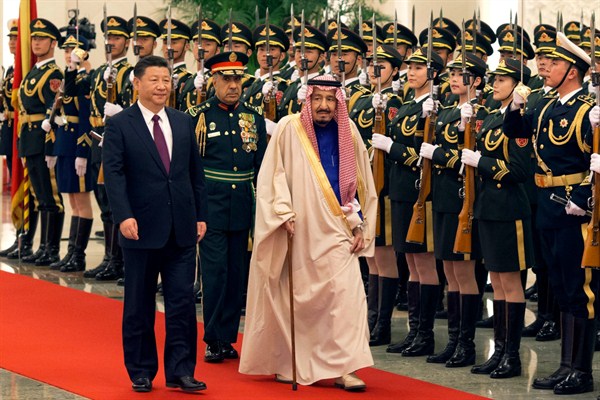On March 15, King Salman of Saudi Arabia arrived in Beijing for a three-day visit. The trip, part of a one-month tour of Asia, was widely covered in the Saudi and international press, in part due to the fact that the king was accompanied by an entourage of 1,000 people. Far more noteworthy were the $65 billion worth of agreements the king signed with Chinese President Xi Jinping in fields ranging from cooperation on China’s space exploration program to the construction of new refineries in China with Saudi Aramco, the state oil company.
Saudi Arabia is clearly seeking to deepen relations across East Asia, and with China in particular. Is this an indication that the kingdom is pivoting away from the United States? Or is Riyadh merely seeking to diversify its relationships?
With the king’s visit, Saudi Arabia is promoting itself as a better, richer and more reliable partner for China than its regional rival, Iran. To counter Tehran closer to home, Riyadh must continue to have good military relations with the U.S. But the Saudis realize that military might is not enough. The kingdom must also boost its economic might through improving its trade relations with the world’s most powerful trading nation—China. To do so, Saudi Arabia’s current diplomatic efforts in East Asia seek to develop stronger links with China, while also making improved Chinese relations with Iran less attractive for Beijing.

